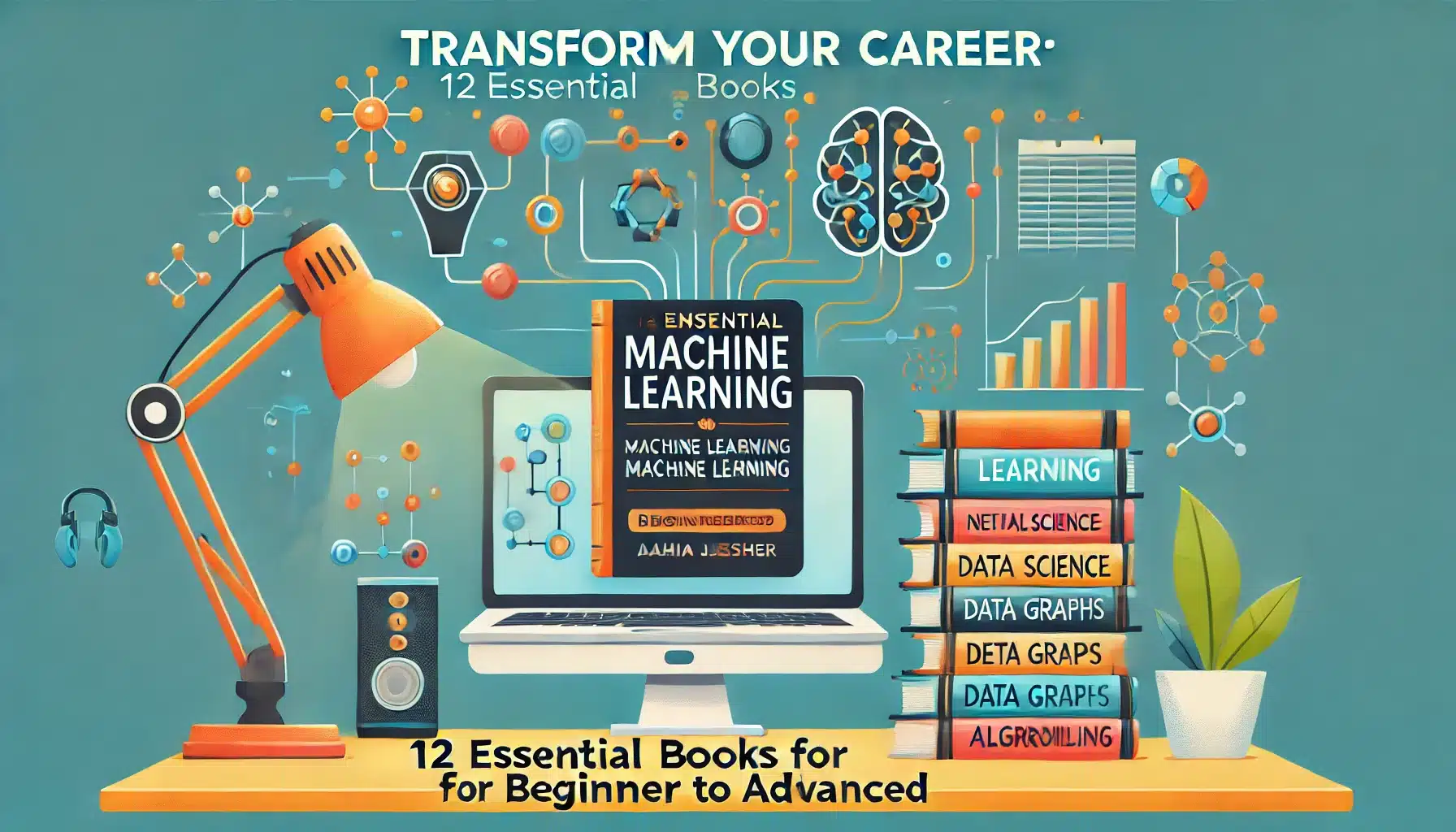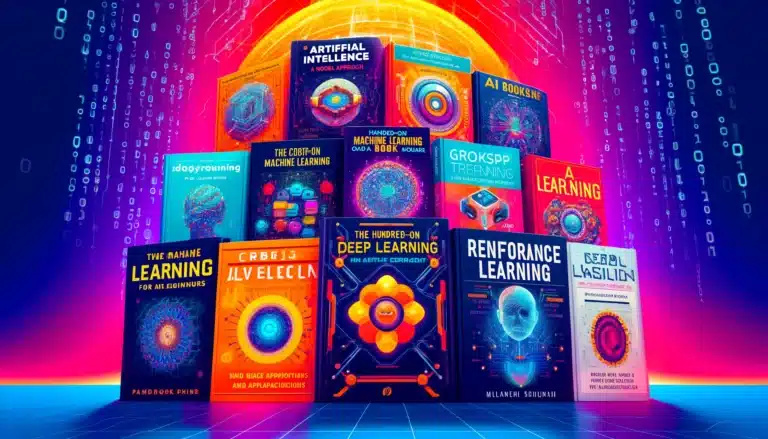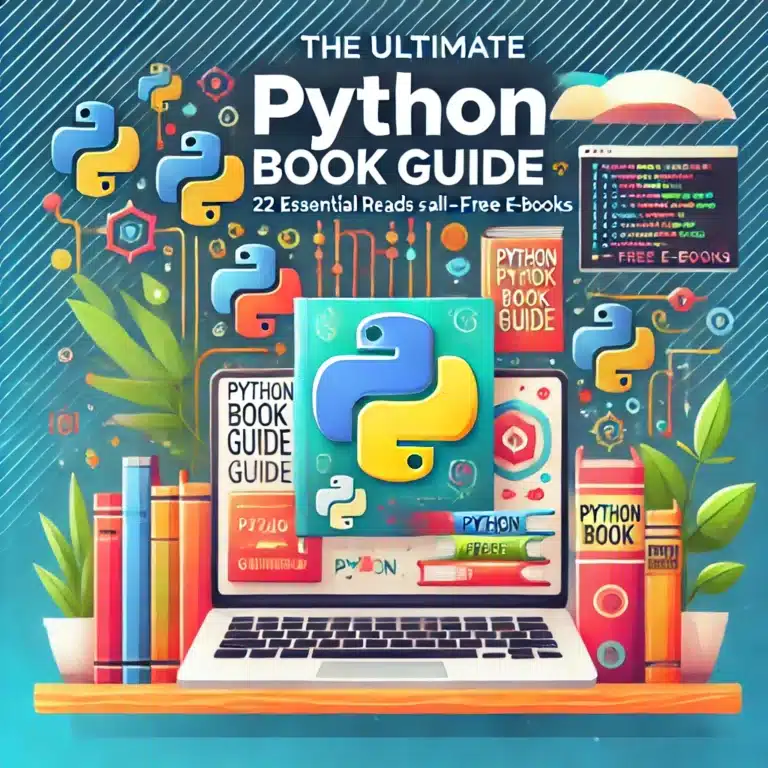Transform Your Career: 12 Essential Books for Learning Machine Learning From Beginner to Advanced
Machine learning is a rapidly evolving field that combines computer science and statistical techniques to enable computers to learn from data. Whether you’re a beginner looking to get started or an expert seeking to deepen your knowledge, these books offer valuable insights and practical knowledge. Here are the best books for machine learning, each selected for its unique contribution to the field.
Can I Learn Machine Learning?
Yes, you can learn machine learning! With the wealth of resources available today, anyone with dedication and the right resources can master the basics of machine learning. Books, online courses, and hands-on projects are excellent starting points.
How Can I Become a Machine Learning Engineer?
Becoming a machine learning engineer typically involves a mix of formal education and practical experience. You should start with a strong foundation in mathematics, statistics, and programming. Learning from reputable books, taking online courses, and working on real-world projects can help you build the necessary skills. Joining a community of practitioners and staying updated with the latest research are also essential steps.
Can Machine Learning Be Self-Taught?
Absolutely, machine learning can be self-taught. Many successful machine learning engineers are self-taught, using resources like books, online tutorials, and practice datasets. The key is consistent practice and continuous learning.
Best Books for Machine Learning
Beginner
1. Machine Learning for Absolute Beginners by Oliver Theobald
Description: This introductory book is designed for absolute beginners with no prior experience in machine learning. It covers the basic concepts and algorithms in a simple and easy-to-understand manner. Topics include data preprocessing, regression, classification, clustering, and more. The book is structured to build confidence in readers by gradually introducing more complex concepts, supported by visual aids and practical examples.
Author: Oliver Theobald
Why you should read this book: This book is perfect for those who are new to machine learning and want to understand the basics without getting overwhelmed by complex mathematics and jargon. It’s written in a straightforward style, making it accessible to anyone interested in the field. The step-by-step approach and practical examples ensure that readers gain a solid understanding of fundamental machine learning concepts.
2. The Hundred-Page Machine Learning Book by Andriy Burkov
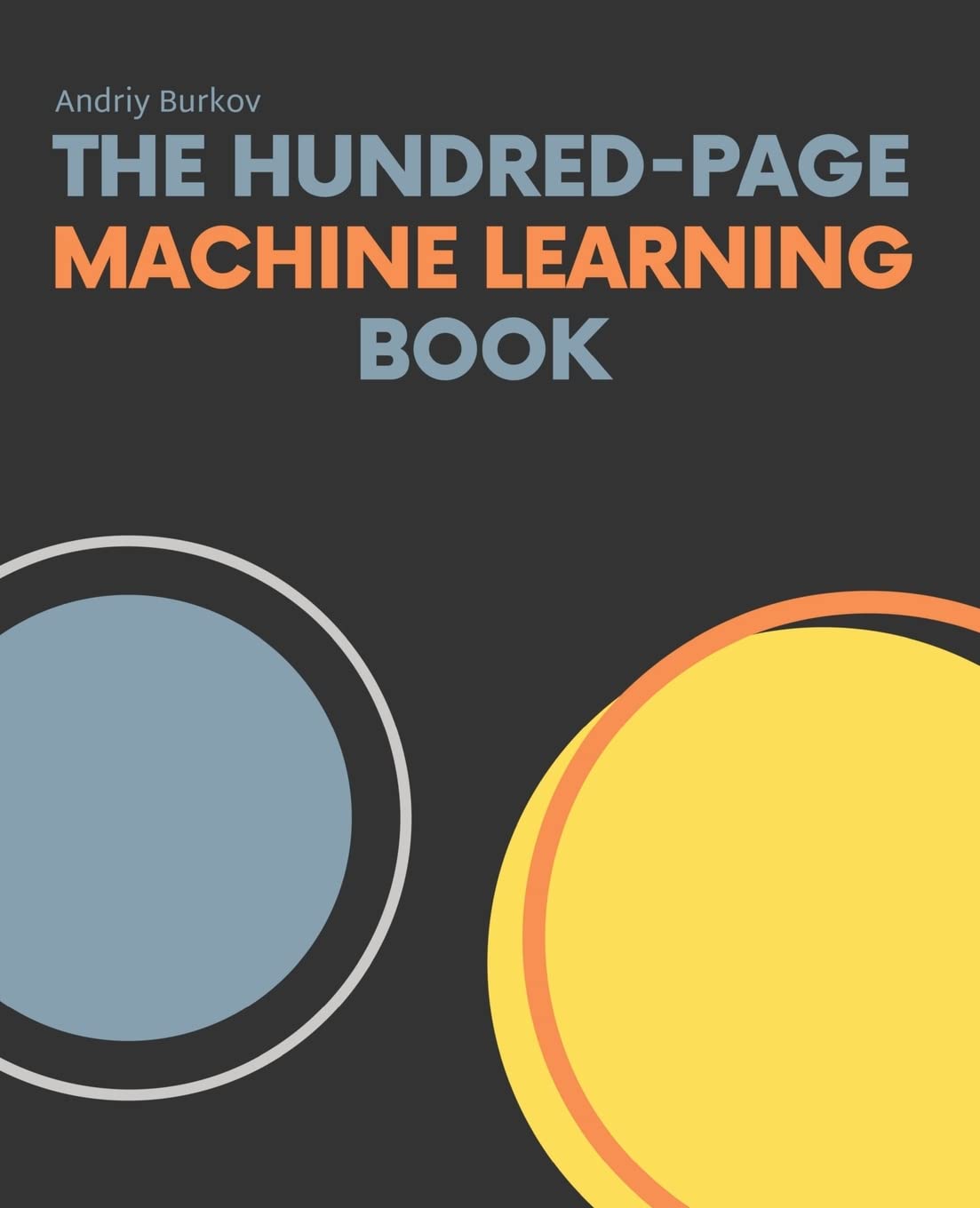
Description: This concise book aims to provide a comprehensive overview of machine learning in just 100 pages. It covers essential concepts and algorithms, making it a quick yet informative read. The book is structured to give readers a solid foundation in machine learning, with chapters dedicated to supervised and unsupervised learning, neural networks, and more. Each chapter includes key points and summaries to reinforce understanding, making it an efficient study guide.
Author: Andriy Burkov
Why you should read this book: If you’re looking for a quick yet thorough introduction to machine learning, this book is perfect. It’s well-suited for busy professionals who want to grasp the fundamentals without diving into lengthy textbooks. The clear and concise explanations make it a great starting point for beginners, providing enough depth to build a strong foundation.
3. Python Machine Learning by Sebastian Raschka and Vahid Mirjalili
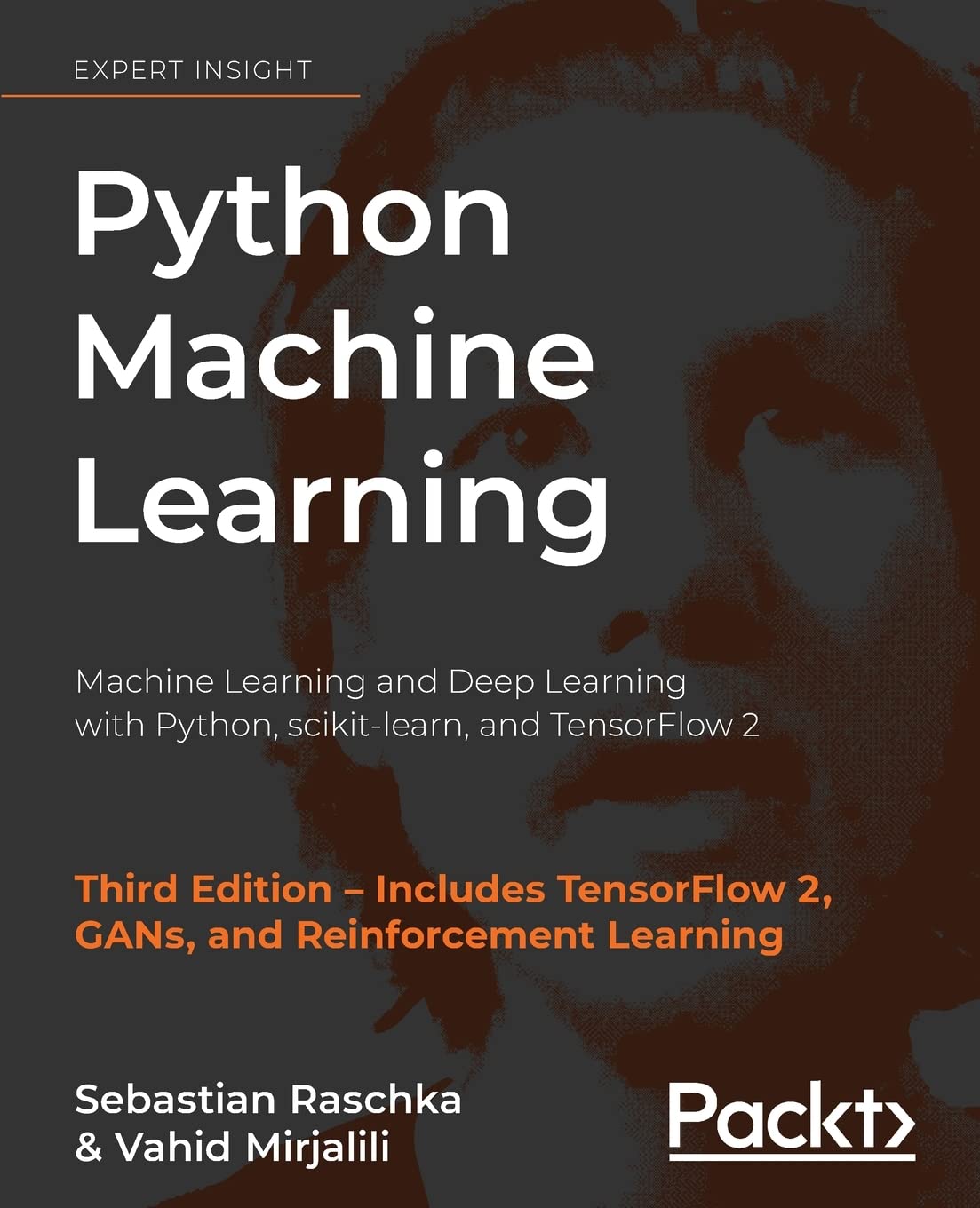
Description: This book offers a hands-on approach to machine learning using Python. It covers a range of topics, including deep learning with TensorFlow and Keras, and machine learning algorithms with Scikit-Learn. The book is designed to help readers implement machine learning algorithms from scratch, with practical examples and step-by-step instructions. It also delves into data preprocessing, model evaluation, and optimization techniques, making it a comprehensive guide for aspiring machine learning practitioners.
Authors: Sebastian Raschka, Vahid Mirjalili
Why you should read this book: Combining theory with practical examples, this book is a comprehensive guide for implementing machine learning algorithms in Python. It’s perfect for both beginners and experienced developers who want to enhance their skills in Python-based machine learning. The detailed explanations and code snippets make it an invaluable resource for learning and applying machine learning techniques.
4. Hands-On Machine Learning with Scikit-Learn, Keras, and TensorFlow by Aurélien Géron
Description: This practical book provides a hands-on introduction to machine learning using popular Python libraries. Covering a wide range of topics from simple linear regression to deep neural networks, it focuses on practical applications of machine learning algorithms. The book includes detailed code examples and exercises to help readers apply what they’ve learned in real-world scenarios. It also covers essential techniques such as model evaluation, hyperparameter tuning, and feature engineering.
Author: Aurélien Géron
Why you should read this book: Ideal for practitioners, this book offers practical examples and exercises that help you apply machine learning techniques to real-world problems. It’s a great resource for learning by doing, making complex concepts accessible through clear explanations and hands-on projects. This book is particularly useful for those looking to build practical skills and understand the application of machine learning algorithms.
Intermediate
5. Pattern Recognition and Machine Learning by Christopher M. Bishop
Description: This book provides a comprehensive introduction to the field of pattern recognition and machine learning. It covers a wide range of topics, including Bayesian networks, graphical models, and kernel methods, with a focus on probabilistic models. The book includes numerous examples and exercises to reinforce learning, making it suitable for both classroom use and self-study. It delves into the mathematical foundations of machine learning, providing a rigorous yet accessible treatment of key concepts.
Author: Christopher M. Bishop
Why you should read this book: Known for its clear explanations and extensive use of examples, this book is ideal for both beginners and advanced learners. It provides a solid foundation in the theory and practice of machine learning, making it a valuable resource for students and professionals alike. The comprehensive coverage of probabilistic models and practical implementation techniques make it a must-read for those looking to deepen their understanding of machine learning.
6. Machine Learning: A Probabilistic Perspective by Kevin P. Murphy
Description: This textbook offers a detailed and modern introduction to machine learning from a probabilistic viewpoint. It covers a broad spectrum of models and methods, including graphical models, approximate inference, and deep learning. The book is known for its thorough coverage of probabilistic models and practical implementation techniques. It includes numerous examples, exercises, and case studies, making it suitable for both academic study and practical application.
Author: Kevin P. Murphy
Why you should read this book: With its rigorous approach and extensive coverage of probabilistic models, this book is perfect for those who want to understand the mathematical underpinnings of machine learning. It’s an essential resource for students and practitioners who want to deepen their knowledge in probabilistic machine learning. The detailed explanations and practical insights make it a valuable addition to any machine learning enthusiast’s library.
7. Introduction to Machine Learning with Python by Andreas C. Müller and Sarah Guido
Description: This book provides an accessible introduction to machine learning using Python. It covers essential concepts and techniques, including supervised and unsupervised learning, model evaluation, and feature engineering. The book includes practical examples and code snippets to help readers understand and implement machine learning algorithms. It also discusses advanced topics such as model tuning, evaluation metrics, and practical considerations for deploying machine learning systems.
Authors: Andreas C. Müller, Sarah Guido
Why you should read this book: This book is ideal for intermediate learners who have a basic understanding of Python and want to apply machine learning techniques in practice. The clear explanations and practical examples make it a valuable resource for anyone looking to enhance their skills in Python-based machine learning. The focus on practical implementation ensures that readers can immediately apply what they learn to real-world problems.
8. Machine Learning Yearning by Andrew Ng
Description: Written by a renowned expert in the field, this book focuses on the practical aspects of machine learning. It provides actionable insights on how to structure machine learning projects and strategies for improving performance. The book is structured as a series of concise chapters, each addressing a specific aspect of machine learning, such as error analysis, setting up a development environment, and prioritizing tasks.
Author: Andrew Ng
Why you should read this book: Andrew Ng’s practical advice and real-world examples make this book invaluable for anyone involved in machine learning projects. It’s especially useful for practitioners looking to optimize their workflows and improve the performance of their machine learning models. The concise and practical nature of the book makes it an excellent resource for busy professionals seeking to enhance their machine learning practices.
Advanced
9. Deep Learning by Ian Goodfellow, Yoshua Bengio, and Aaron Courville
Description: Written by three experts in the field, this book provides an in-depth introduction to deep learning. It covers fundamental concepts, techniques, and applications of deep learning, along with practical insights. The book is structured to guide readers from the basics to advanced topics, with numerous examples and exercises. It discusses a wide range of deep learning architectures, including convolutional networks, recurrent networks, and generative models, providing a thorough understanding of modern deep learning techniques.
Authors: Ian Goodfellow, Yoshua Bengio, Aaron Courville
Why you should read this book: As a comprehensive guide to deep learning, this book is essential for anyone interested in this rapidly growing area of machine learning. It balances theoretical foundations with practical implementation, making it a valuable resource for students and professionals alike. The detailed coverage of advanced topics and practical insights make it a must-read for those looking to specialize in deep learning.
10. Bayesian Reasoning and Machine Learning by David Barber
Description: This book offers a detailed introduction to Bayesian approaches in machine learning. It covers a wide range of topics, including Bayesian networks, probabilistic graphical models, and approximate inference techniques. The book includes numerous examples and exercises to help readers understand and apply Bayesian methods in practice. It also discusses advanced topics such as variational methods and Monte Carlo techniques, providing a comprehensive understanding of Bayesian machine learning.
Author: David Barber
Why you should read this book: This book is ideal for advanced learners who want to explore Bayesian approaches in machine learning. Its comprehensive coverage and practical examples make it a valuable resource for students and practitioners who want to deepen their understanding of probabilistic models and inference techniques. The focus on Bayesian reasoning provides a unique perspective on machine learning, making it a valuable addition to any advanced learner’s library.
11. Reinforcement Learning: An Introduction by Richard S. Sutton and Andrew G. Barto
Description: This foundational text provides a comprehensive introduction to reinforcement learning, a key area of machine learning. It covers essential concepts, algorithms, and applications, with a focus on theoretical foundations and practical implementation. The book includes numerous examples and exercises to reinforce learning, making it suitable for both classroom use and self-study. It discusses key topics such as dynamic programming, Monte Carlo methods, and temporal-difference learning, providing a thorough understanding of reinforcement learning techniques.
Authors: Richard S. Sutton, Andrew G. Barto
Why you should read this book: As a foundational text in reinforcement learning, this book is essential for anyone interested in understanding this important area of machine learning. Its clear explanations and practical examples make it a valuable resource for students and professionals alike. The comprehensive coverage of reinforcement learning algorithms and practical insights make it a must-read for those looking to specialize in this field.
12. Artificial Intelligence: A Modern Approach by Stuart Russell and Peter Norvig
Description: While not exclusively focused on machine learning, this book provides a broad overview of artificial intelligence, including key machine learning concepts. It is widely used in university courses and covers a wide range of topics, including search algorithms, knowledge representation, and machine learning. The book includes numerous examples and exercises, making it suitable for both academic study and practical application. It provides a comprehensive understanding of AI, with chapters dedicated to the philosophical and ethical implications of AI.
Authors: Stuart Russell, Peter Norvig
Why you should read this book: As a foundational text in artificial intelligence, this book offers valuable insights into the broader context of machine learning within AI. It’s an essential read for a well-rounded understanding of the field, making it a valuable resource for students and professionals alike. The extensive coverage of AI topics and practical insights make it a must-read for those looking to deepen their knowledge in artificial intelligence.
These books provide a well-rounded understanding of machine learning, from theoretical foundations to practical applications. Whether you’re a beginner or an experienced professional, these resources will help you stay ahead in this rapidly evolving field.
For more curated book lists and reviews, visit Best Books for You.
